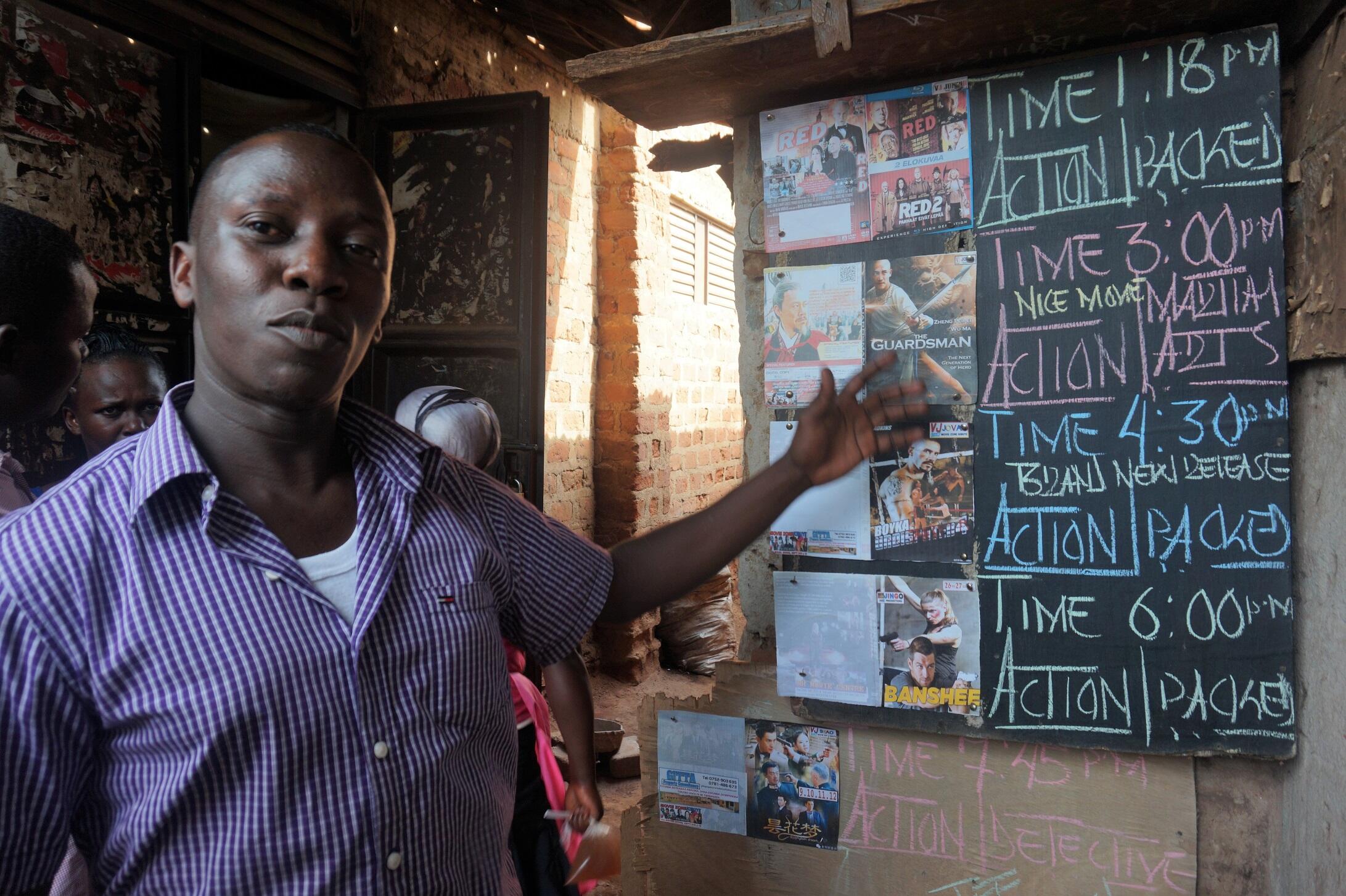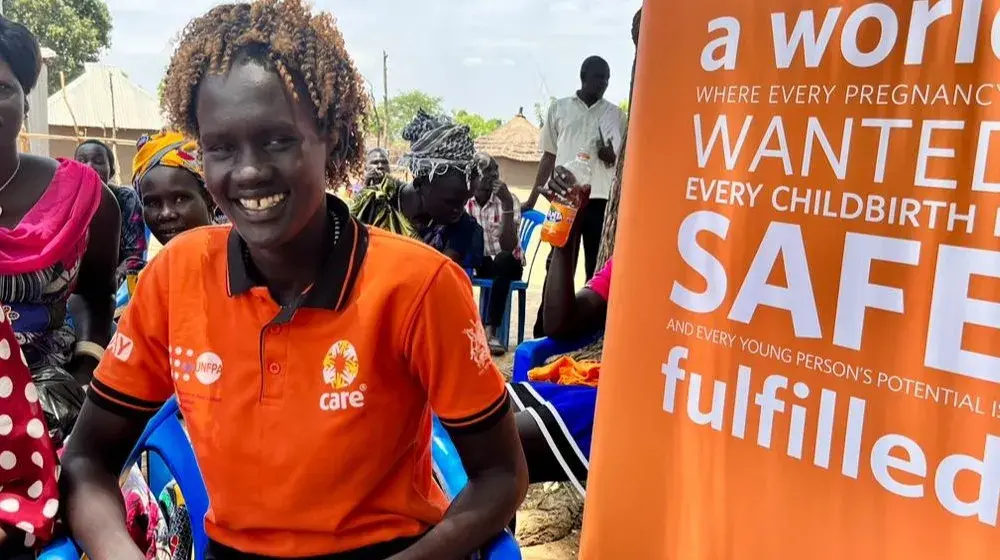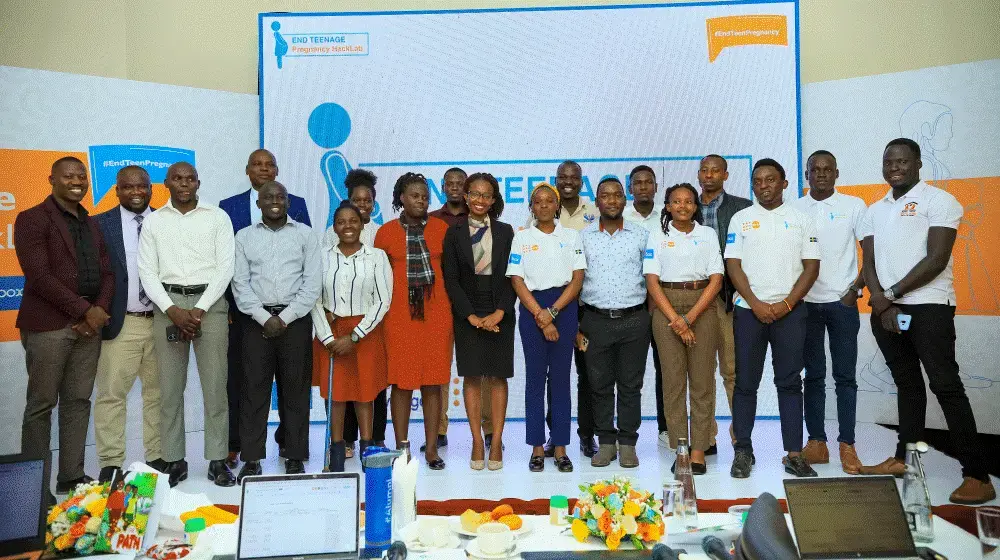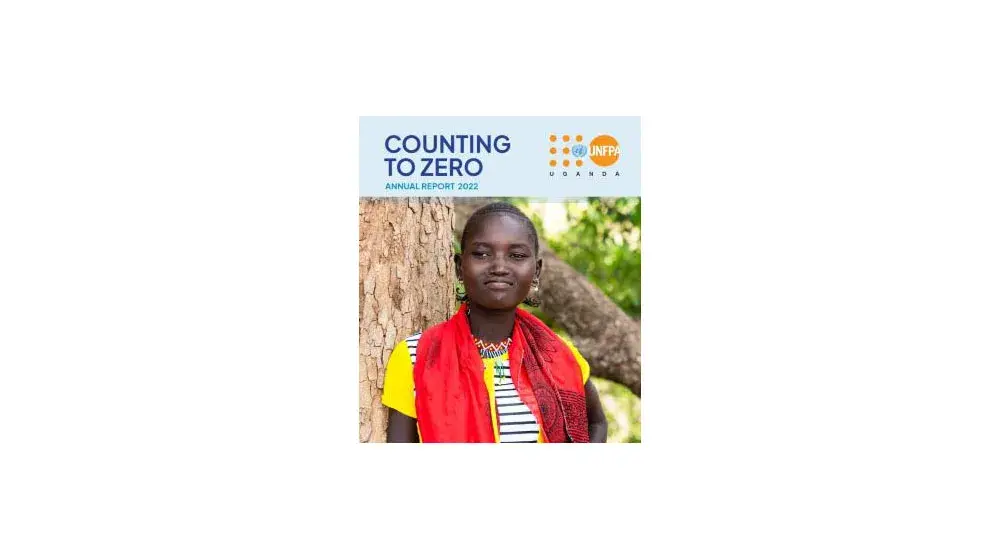At 22, Resty Kabalangira is a small business owner and young mother in her home town of Mubende, central Uganda.
Resty owns a salon. And, on a typical day her customers, mostly young women, engage in lively banter, trading stories about their lives.
But what sets her salon apart from others is that amid the friendly banter of the customers, Resty chips in a few words of advice to them about reproductive health.
“The salon is a good space to talk; there is always gossip about something so it is easy to include messages on how to prevent pregnancy and the benefits of using family planning,” she says.
Over a hundred Kilometres away from Mubende, in Kampala, Muzafir Lyazi owns a small video hall. Here he charges 1,000 shillings entrance for people in his neighbourhood to watch films. Most of his customers are young people, which is perfect for Muzafir. Just before the film starts showing, Muzafir talks to the young people telling them about HIV/AIDs and how to protect themselves.
Both Resty and Muzafir are peer educators, trained to talk to other young people about reproductive health issues including family planning as part of UNFPA’s Youth Enterprise Model (YEM) project. Implemented since 2012 in the districts of Kampala and Mubende, the project is funded by the David and Lucille Packard Foundation. It is implemented in partnership with Straight Talk Foundation, Reproductive Health Uganda and Communication for Development Foundation Uganda.
Health and Economics: Making the connection
According to information from the US Agency for International Development, when young people are economically vulnerable, they are more likely to engage in high-risk behaviours in efforts to survive. Risky sexual behaviour among young people also impacts their ability to save, complete education, enjoy good health and contribute to the development of their communities.
The Youth Enterprise Model therefore attempts to create opportunities for young people to remain healthy and economically engaged by linking economic activities and skills development with provision of a package of sexual and reproductive health information and services.
Peer to peer: supporting young people to access information
Along with over 800 other peer educators in the two districts, Resty and Muzafir reach out to other young people in their communities with information on reproductive health services. The peer educators also have in their possession referral cards that they use to refer young people to health facilities where they can receive services.
According to a 2016 project report the project reached has reached more than 963,000 young people with information and services.
Leaving no one behind; multiple strategies
Alongside the peer education strategy project staff provide information and services through vocational training institutions, health facilities, and at community level where young people are engaged in small and medium scale enterprise including brick laying, video halls, hair-dressing and tailoring. In addition to being trained as peer educators, the young people are also given business skills to enable them manage their businesses. Like Resty and Muzafir, many of the peer educators trained by the project are small business owners. So, the project works with banks and other financial institutions not only to provide young people with financial literacy skills, but also with sexual and reproductive health information. In addition, one of the implementing partners, Communication for Development Foundation operates a toll-free hotline through which young people can make confidential calls to trained counsellors and get detailed information about their health.
Consolidating gains
The project has changed lives for individual young people like Resty and Muzafir, as well as transformed communities in Mubende and Kampala district. For Muzafir, added to his knowledge on HIV/AIDS is detailed information about family planning and the importance of good health for young people.
“Before I wasn’t really believing in family planning but after getting enough information I am convinced and my partner and I use it. I always tell my friends that if you’re healthy you can be able to fulfil your plans. If you’re stressed and unhealthy you can’t take care of your business properly,” he explains.
Business wise, things are also looking up for Muzafir; together with five other peer educators he has formed a business group, Together Twendelee. The 74 member- group put up music dance and drama performances from which they make money.
“With the business training I got, I have expanded my business. I saved some of the money I made from the salon to build a small three-room structure that I hope to rent out in future. I am also able to look after my four year old daughter,” says Resty.
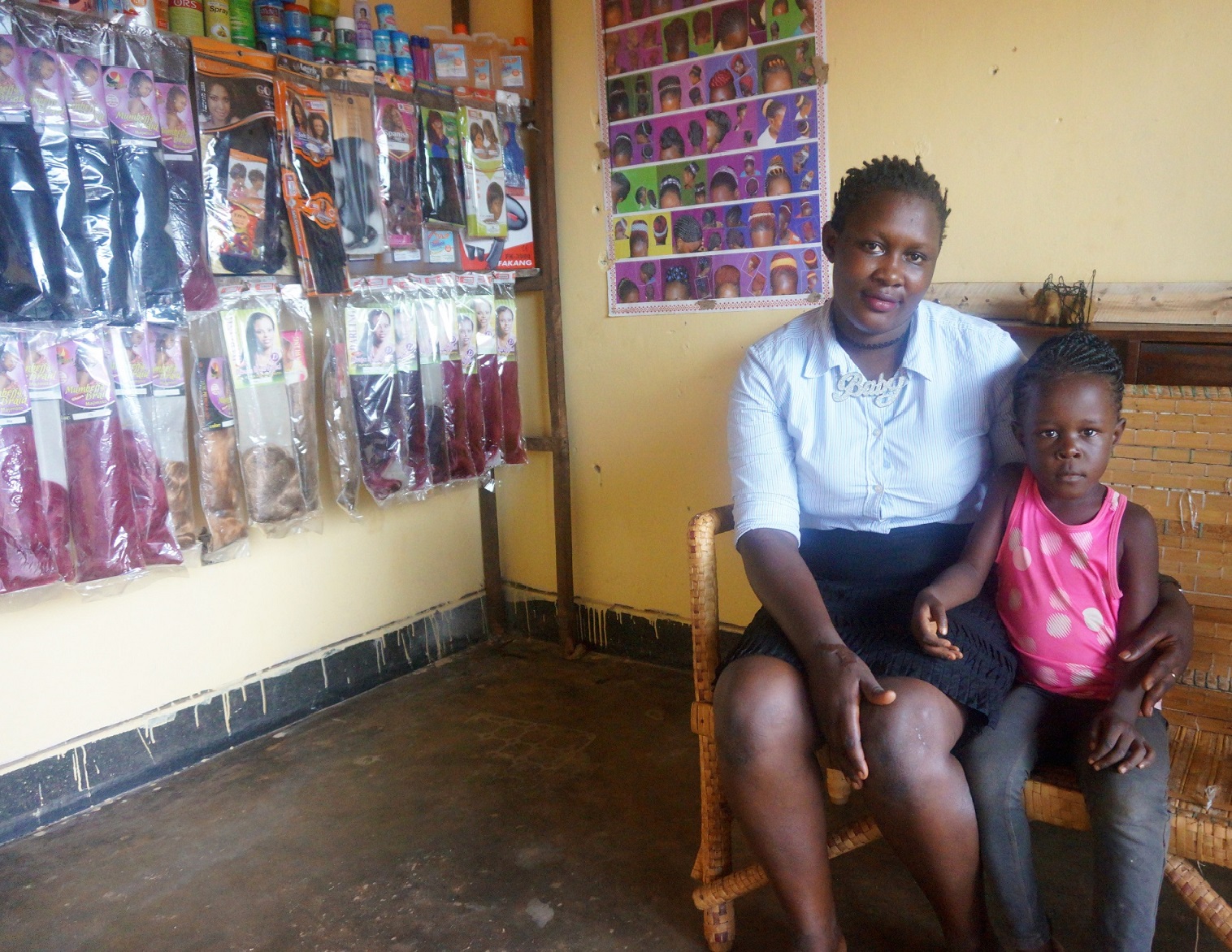
For UNFPA Representative Mr. Alain Sibenaler, in order for the project to become more sustainable and reach even more young people, UNFPA and its partners need to find ways of branding and pitching it to even more private sector partners as a successful model for promoting entrepreneurship using Sexual and Reproductive Health as an entry point.
“We need to be able to demonstrate very tangibly, that this (linking reproductive health and entrepreneurship) is something innovative that works. We need to scale it up while linking to existing initiatives,” he said.
For the district leaders, YEM is providing useful lessons for the local government’s own interventions aimed at addressing youth issues, as explained by the Mubende District Probation Officer, Mariam Nagawa: “One of the most unique things about the project is that the component of financial literacy is integrated with sexual and reproductive health knowledge. The implication this has for the district is that young people who have had contact with YEM are handling business better; they have good record-keeping and financial discipline and are in better position to pay back loans accessed under the Youth Livelihood Programme,” she says.
By Martha Songa

